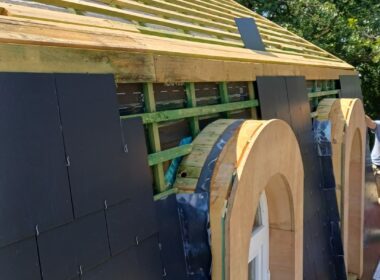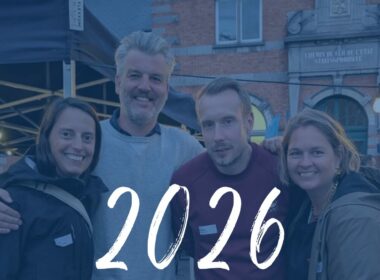As a national umbrella sectoral organisation, ORI also highlights the role of consultancy and engineering firms in Brussels. “Because our members are mainly active in construction and infrastructure projects, the changes that are taking place in the broader construction sector also have a major impact on the consulting and engineering firms’ sector,” says Christophe Hautier, Managing Director at ORI.
The organisation has both large and small consultancy and engineering firms from Brussels, Flanders and Wallonia among its members, and these are active in numerous sectors such as construction, infrastructure, urban development, the environment and industry. Their specialist services consist of design, engineering, survey and consultancy services. Together they account for several thousand employees.
Organisation, Representation and Information
“We support and bolster our members in their business environment,” says Christophe Hautier. “We are committed to our sector’s important role in societal, professional and cross-sectoral challenges. We tackle important areas such as mobility, climate change, energy transition and circular construction in our operations. Experts sit around the table and reflect on these societal challenges. The professional challenges lie mainly in the profession itself, where its image and the labour market are important subject areas. Policy is also discussed here, given that it is important that procedures are carried out and investments are made as efficiently as possible, and we as a sector can play an important role in this.”
Innovation and digitisation
“As an organisation, we are also involved in numerous projects and cases, working with other organisations to achieve the best results for the construction sector in general, and our sector in particular. Innovation and digitisation play an important role in these cross-sectoral challenges. When I think of digitisation, I think of BIM, or building information model. We prefer to use the building information management definition, because BIM actually includes a logical way of working together and provides structure for the exchange of information.”
“BIM is a digital model in which the architect, the contractor and the installers enter all the data about a building. So a traditional building plan, but in three dimensions and with all the information about the materials and techniques used. This technology will make it possible, among other things, to visualise a construction project even before the first spade goes into the ground. It can also optimise mutual connections and avoid work being duplicated. In short: nothing but benefits. With BIM, however, much more is possible. In order for this technology to be used efficiently by architects, engineering firms and contractors, a lot of information (big data) is needed about product characteristics, the implementation or placement of those products and their price. Furthermore, its practical implementation still needs to catch up in the years ahead. Compatibility between software, use of open standards, modified contractual provisions, accessibility of data, shifting of tasks over time, coordinated working methods and cooperation between all stakeholders, etc. are issues that need to be discussed and addressed.”
“ORI is therefore proactively involved in bringing together the right experts to address all these issues. ORI collaborates with clients, contractors, architects, knowledge centres, etc. through various BIM working groups in harmonising our BIM approach for the Belgian market. Taking into account the strengths and responsibilities of each party involved, we endeavour to create the greatest balance possible between them so that the BIM process forms added value and delivers a high-quality product. At an international level, we also represent our Belgian needs and advise on the development of the new ISO and CEN BIM standards. Construction processes can be improved with big data. AI, VR, AR, 3D printing and robotisation are examples of technological innovations with which the construction industry will eventually come into contact with new ways of working.”
Sustainable and climate-resilient society
“We are also an informed voice in the debate about a sustainable and climate-resilient society,” continues Christophe Hautier. “For example, I see a leading role for consultancy and engineering firms in the transition to a climate-proof environment. They can contribute to new solutions to this challenge in different ways, for example by designing sustainable industrial sites and developing renewable energy opportunities, or designing suitable transport systems. In addition to focusing on reducing CO2 emissions, technical expertise is also crucial for solutions to adaptation to climate change for infrastructure and construction projects, and ensuring that future climate conditions are sufficiently taken into account. Engineering firms have the advantage that they can look at the problems in an integrated way. Most climate adaptation plans are arranged by sector, but they see the overall picture.”
Since 2020, ORI has been a partner of the Belgian Construction Awards, where it rewards projects that have a clear climate-proof approach with an ORI Climate Proof Award. The first time this award was issued it was won by Witteveen+Bos.
Asset management
ORI regularly expresses its views on this matter and is therefore a benchmark for the role of its members in creating a sustainable, healthy and safe society. “Our country is lagging behind in terms of the impact of the road infrastructure on competitiveness. To tackle this problem, we set up a chair together with two Brussels universities (VUB and ULB) and a number of consultancy and engineering firms, called ‘Infrastructure Asset Management & Life-Cycle Planning’. By doing this, we want to use the current dynamics to boost governance and management practices. Since September 2019, a PhD student at Solvay Business School has been researching a more sustainable Belgian infrastructure policy.”
Promotion of the engineering profession
According to Christophe Hautier, the opportunities in the construction sector are there for the taking, as are the challenges. “At this moment in time, the demand for engineers is greater than the available supply, but due to the many efforts of the various players involved, we hope to reverse the market situation in the future. Our sector is therefore committed to promoting the engineering profession, and provides close contacts with the academic world and young talent. Today’s young people are tomorrow’s policymakers, engineers, scientists and innovators.”
Activation
“ORI wants its members to be proud of their sectoral organisation, to be involved in the organisation and also to want to be identified with ORI,” says Christophe Hautier. Are there any projects that they themselves are proud of? “The fact that we are top of mind as far as BIM is concerned is certainly at the top of that list, but I also think of our contribution to drawing up conditions and standard tasks. Such documents help the parties involved to agree on who will take on which task. Result? Fewer mistakes, less reworking and fewer costs of failure. A list of tasks such as this also perfectly embodies what we want to achieve: greater collaboration and fewer discussions. Doesn’t that benefit everyone?”
Further information can be found at: www.ori.be
Author: Christophe Hautier, Managing Director, ORI
Read also: Agglomerated stone and digital manufacturing techniques to restore heritage buildings; For responsible builders; Estimation of requirements and circularity; The social economy unites partners with respect to sustainability.



